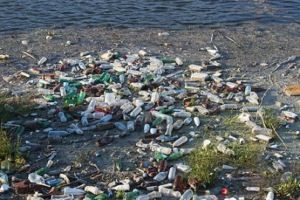News
Danes turning waste plastic bottles into raincoats
This article is more than 6 years old.
Melton is doing its bit to cut down the number of plastic bottles floating in the sea

This little lot should make quite a few raincoats (photo: byrev/pixabay)
One of the biggest headaches resulting from our throwaway society is vast amounts of plastic ending up in the world’s oceans. The yearly amount is estimated at around 8 million tonnes.
Step forward Melton, a Danish manufacturer of children’s clothes from Vejen in south Jutland. From the spring onwards, they are going to start producing rainwear for kids made of waste plastic.
Think of the children
“As makers of children’s clothes we have a responsibility. It’s the children who will inherit the world after us, so we must be more environmentally-conscious,” the firm’s CEO, Helle Ghodt, told DR Nyheder.
The Danish nature organisation Danmarks Naturfredningsforening hopes that this project could lead to more plastic being collected from the sea.
READ MORE: Denmark’s dirt could hold key to climate change solution
Monetising rubbish
“You give rubbish a value and it turns into a resource,” said the organisation’s senior advisor on energy and the environment, Sine Beuse Fauerby.
However, it is also important to make sure that microplastics don’t get into the water when the clothing is washed, as has previously seen with fleece clothing.
On top of that, plastic can contain a number of nasty chemicals, placing a heavy responsibility on those who turn it into new products.
The full cycle
Melton has calculated that it can use 80 percent less energy through the use of recycled plastic for rainwear instead of the traditional polyester and oil.
Another clothing company, Knowledge Cotton Apparel, has also been actively using plastic bottles to produce clothes and by 2020 estimates that it will have used 4.5 million of them, so the trend is there.
Consumers are increasingly wanting to know how the clothing they buy is produced and business models are having to consider things like the way clothes are disposed of when they are no longer needed.
Melton’s collection is expected to be available by August this year.










































